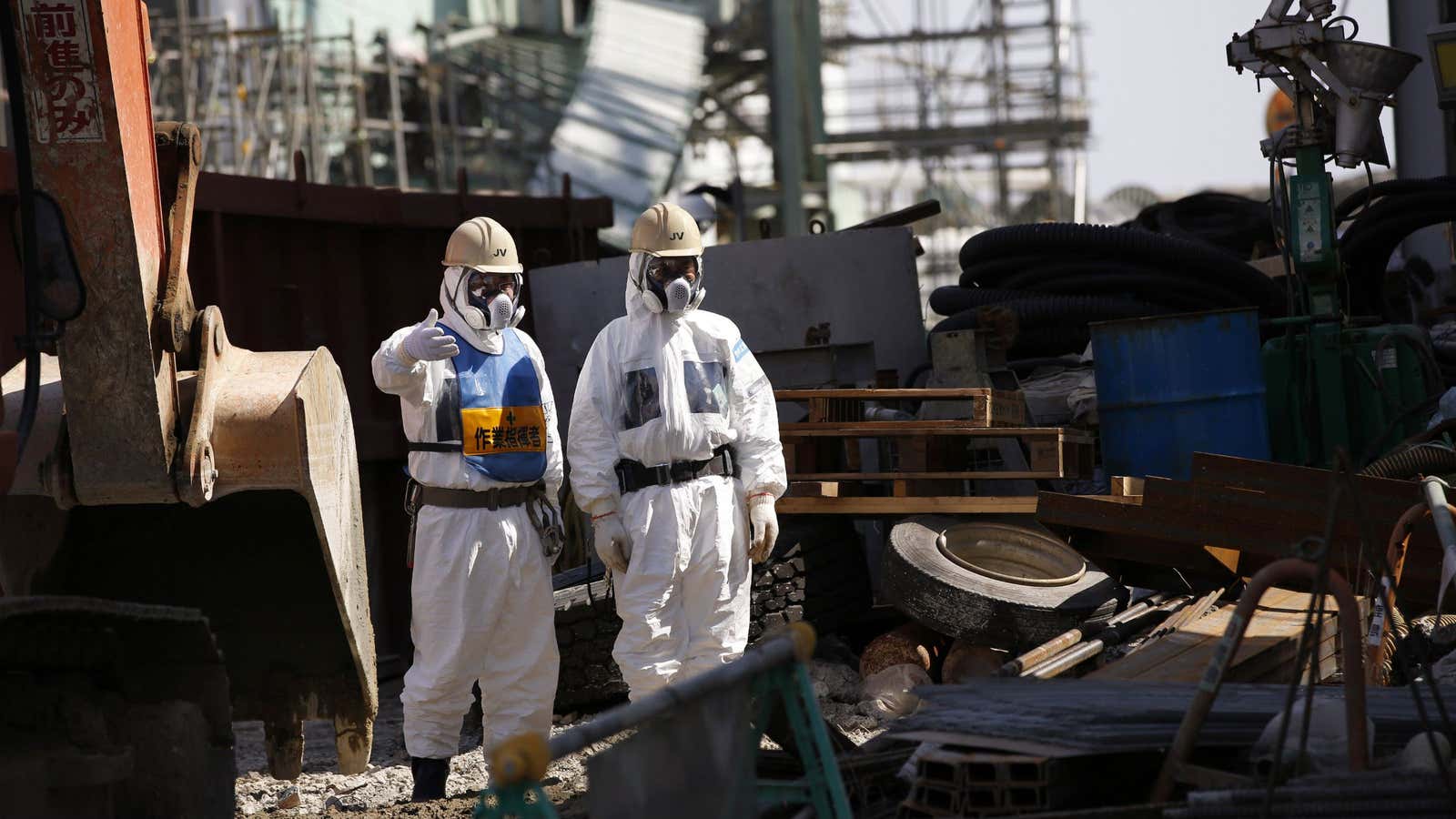Tokyo Electric Power’s once-proud reputation is nearly as radioactive as its ruined Fukushima nuclear plant, and the government is running out of patience. A panel organized by the ruling Liberal Democrat party is considering a recommendation to partially break up the company known as Tepco.
Options include creating a separate unit within Tepco to handle the clean-up, spinning off the unit as a separate company, or making the unit part into an independent government agency. Reuters cited a person familiar with the panel’s deliberations as saying that the first, least severe option was favored, but there are plenty of Tepco critics eager to seize the advantage and push for a more radical revamp.
“When the beast has fallen in the water, that’s your only chance to finally defeat it,” Naoki Inose, vice-governor of the Tokyo metropolitan government, told the Financial Times earlier this month. (The Financial Times noted that “beating a drowning dog would usually seem cruel, but breaking up Tepco would actually be a mercy killing.)
There has been a long string of mishaps since the tsunami and earthquake in March, 2011. Just this month, four tonnes (4.4 tons) of radioactive water spilled during a transfer, one worker accidentally cut power to water pumps that keep the radioactive core from overheating, and another worker mistakingly detached a crucial pipe, creating a seven-tonne leak.
Tepco has admitted that it can’t attract enough workers for the clean-up effort, which have been plagued by reports of organized crime involvement. And the company has repeatedly clashed with the government about who will foot the clean-up bill—the environment ministry says it owes more than 30 billion yen ($305 million), and “has said it will continue to think over whether it will reimburse the government.”
Many critics see an opportunity to enact much-needed reforms. The utility sector is dominated by massive vertically-integrated power companies like Tepco that control generation, transmission and distribution with almost no competition.
Tepco was nationalized last year to save the company from bankruptcy. The government injected 1 trillion yen into the company in exchange for a 50.1% stake—although it’s mostly in non-voting stock—and promised to underwrite up to 5 trillion yen of compensation to disaster victims. Initially the plan was for Tepco to pay back the compensation funds within a decade, but a government audit board now says it could take as long as 31 years.
